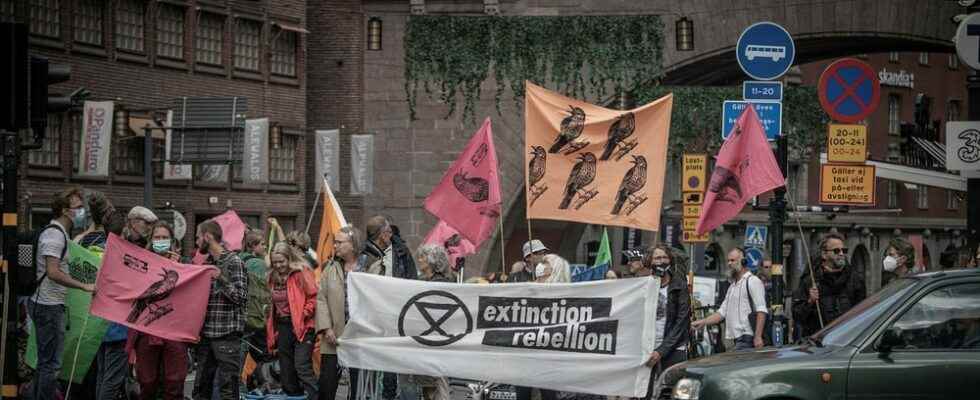– I would very much like to be able to devote myself to my garden and the loom instead of to climate activism. But I do not want to be a part of the humanity that goes to sleep against disaster. So I will continue to take action, says 69-year-old Barbro Stigsdotter who has just been sentenced to a 30-day fine of SEK 180.
It was at the end of the summer of 2020 that the organization Extinction Rebellion carried out actions in central Stockholm to protest against Sweden’s climate policy, which was also criticized by the Climate Policy Council for not being enough.
The police let the activists block off parts of Norrlandsgatan for about two hours in order to convey their message. The police then ordered that the street be evacuated so that traffic could pass again.
Several of the activists, who were in their 20s and 75s, chose to stay until they were lifted away by the police. 24 of them were later charged with disobedience to law enforcement.
In the district court hearings that took place in early May, all defendants invoked emergency law, referring to the fact that climate change threatens life, health and property.
But that objection was not accepted. The district court writes in itself in the judgment that emergency law can apply as a reason even in the event of a prolonged state of danger, even though the provision is primarily written for more urgent situations – but that in this case it can be questioned whether “the act is a justified and effective measure to avert the danger to life, health and property ”.
In addition, the district court points out that the police let the activists block the traffic and carry out their action for almost two hours, and that they were therefore given the opportunity to create opinion and attention.
The district court concludes that 19 of the accused will be sentenced to a daily fine, which in total amounts to between SEK 1,500 as a minimum and SEK 56,000 as a maximum. In addition, each and every one of the convicts must pay SEK 800 to the crime victim fund. Five of the accused are acquitted due to uncertainties about the extent to which they participated in the action in question.
– It was an expected verdict. But I had hoped that there would be people who can go a little out of bounds even in the judiciary, but that did not happen this time, says Barbro Stigsdotter.
Dennis Martinsson, who is a researcher in criminal law at Stockholm University, agrees that the verdict was expected.
– This is how the courts usually rule in this type of action, that it is not considered an emergency. Instead, they usually point out, just as in this judgment, that there are other ways to express their opinion in a democracy that does not break the law, says Dennis Martinsson.
The Moderates and the Sweden Democrats have proposed tougher penalties for such climate actions, so that there will be mandatory detention. What do you think about it?
– It is very doubtful in comparison with the crimes where today there is a strong reason for arrest, such as serious violent crimes and gun crimes. Including disobedience to law enforcement, that you do not move when the police say so, would probably be disproportionate, says Dennis Martinsson.
But if the action leads to, for example, an ambulance not arriving on time?
– It is already possible today to investigate for, for example, sabotage or blue light sabotage, which has a significantly higher penalty scale. So it is already covered in today’s legislation, says Dennis Martinsson.
Read more: Accused climate activists claim emergency law
